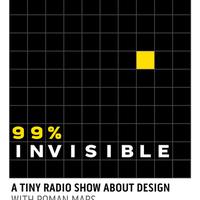99% Invisible-05- 99% Forgotten
Roman Mars (RM): This is 99% Invisible. I'm Roman Mars. RM: Two vast and trunkless legs of stone stand in the desert.
William Littmann (WL):In Osymandias
RM: The poem by Percy Shelley
WL:The poem is about a historic monument of a figure
RM: A shattered visage lies
WL:Who has a wrinkled lip and a sneer of cold command. The statue points to all the works around him and the poem read “My name is Osymandias, king of kings.”
RM: Look upon my works, ye mighty and despair.
WL: And the rest of the poem says that all of the works that the statue is pointing to have disappeared.
RM: Nothing besides remains.
WL: So it's really a poem about – that the figure remains but everything around it has disappeared. Everything that the figure and the statue was supposed to be proud of.
RM: But this is about another former statue. That once stood high above San Francisco.
WL: This is kind of the inverse. All of the things around it, all of the landscape that the statue was supposed to sort of urge to liberty and philanthropy, that's all still here. In San Francisco, what the statue was dedicated to improving is there but the statue its self has disappeared.
RM: That's William Littmann. WL: I teach architectural history at the California College of Art in Oakland and San Francisco.
RM: And we're walking up to what I think might be the greatest place in all of San Francisco. That few people have ever heard of. What was once considered the geographic center of the city.
WL: So here we come up, it's this kind of raised plinth RM: On top of mount olympus
WL: A massive stone pedestal that rises up to nothing.
RM: It's the base of a statue that isn't there. WL: Where once this twelve foot high broze statue stood on top of it.
RM: On a site that has some of the best views of the entire city.
WL: And the view is insane! It's a 360 view of the city. RM: The statue was called “Triumph of Light”
WL: It was a statue of this woman who looked a little like the Statue of Liberty. She was holding aloft a giant torch. In the other hand she had a piece of parchment, and below her was a crouched figure sort of reaching up to these two objects as if it was symbolizing man kind, reaching for light and liberty.
RM: It was errected in 1887 by then-developer and future mayor Adolf Sutro, as a symbol of liberty and progressivism.
WL: When Sutro dedicated the statue, in 1887 on Thanksgiving Day, he told the crowd “may the light shine from the torch of the goddess of liberty to inspire our citizens to good and noble deeds for the benefit of mankind.”
RM: It was supposed to stand forever, to be a timeless reminder.
WL: About the importance of liberty and civilzation and philanthropy.
RM: But it didn't last. WL: In the 1930s, people referring to it as “The Mystery Monument,” so obviously people have forgotten about Sutro and his goals. And then by the 40s there's discussion about removing it RM: After decades of neglect, sometime in the 1950s
WL: It just disappears. And people discuss it online- where it may have gone
RM: So no one knows.
WL: People really do come up to this hill, The same things that drew Sutro here draw dogwalkers and, you know, just urban walker that come up here. Maybe through these kinds of discussions we can actually have someone maybe decide to build a new statue. I mean, who knows what it would look like, though. Imagine the debates about how would you symbolize liberty and philanthropy.
RM: Yeah, I don't know if I would like to see anything else here. Does that make me weird?
WL: Okay. Then what we should have here is a little plaque telling people that there was once this beautiful sculpture to light, liberty, and philanthropy, and now its gone so that's what we need to work on. Although a sense of mystery is always good. You know, people look up and think “what could have been up there? What is missing?”
RM: 99% Invisible is about the stories of human-made objects and maybe, in this case, the absence of the object makes for a better story. A monument to learning and light and liberty that's missing is almost a more amazing monument that says more about us. WL: About just neglect, how a city forgets its past.
RM: 99% Invisible was produced by me, Roman Mars, with support from Lunar. It's a project of KALW, the American Institue of Architects San Francisco, and the Center for Archtiecture and design. Find out more and see pictures at 99percentinvisible.org

